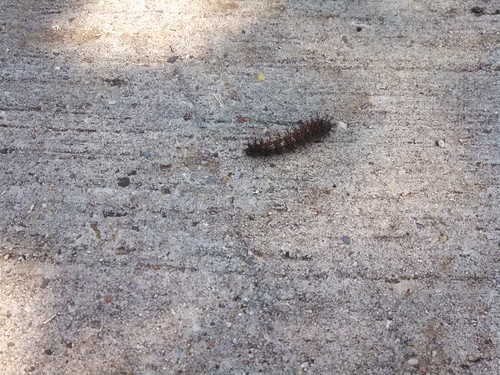
Along with springtime in New Orleans comes not only the caterpillar plague but other mild inconveniences. Chief among these is the aggressive post-card picture perfect weather. On the days it isn't raining, the bright sun and the obnoxious greening and blooming of everything is almost too much to take. I am convinced it makes my migraines worse.
Meanwhile the exactly not-too-hot and not-too-cold temperatures ensure that bike parking is impossible to find anywhere. It's also, not coincidentally, the time of year when every weekend brings with it a new outdoor festival which.. again.. good luck tying up your bike within a 10 block radius of one of these. There's probably one near you themed loosely around some neighborhood, nationality, or seasonal foodstuff. Not too long ago, such events were a source of relatively cheap fun. I suppose they still are for the most part. But lately there's something more ominous about them. It's almost as if they're custom made to sell real estate.
This is an article about skeptics of "New Urbanism" like Joel Kotkin whose new book is billed, in part, as a defense of suburban sprawl. I'm not interested in picking that apart just now. I like living in the city, for one thing. And I'm at least sympathetic to the criticism of the American style of suburb planned and built around the automobile. Maybe the idea is we need to start thinking about better ways to do "sprawl" rather than conceptualizing it is a mistake altogether as is the current fashion.
But whatever you might think about life in the burbs, Kotkin's observation about the state of our cities is grimly resonant.
A native of Brooklyn, he has spent plenty of time in the Bay Area, but New York and San Francisco have become “feudal cities” that are “increasingly bifurcated between a post-industrial elite and a growing underclass,” as he argues in The Human City. Elsewhere, he calls the New Urbanist city an “adult Disneyland with plenty of civic restaurants, shops and festivals,” a place blissfully removed from reality, except perhaps in the persistence of the homeless “problem.” Such an area is by definition unwelcoming to the sorts of people who, in centuries past, came to cities with dreams of making it. If the streets of lore were once paved with gold, today they are paved with fair-trade coffee beans.This is not to say that anyone has anything against restaurants, shops, and festivals. It's just that in the context of our gentrifying and increasingly exclusive urban environment, these entertainments start to feel threatening to those who are less and less certain they can afford to live where they happen. When every street festival is suddenly an "amenity" that sells another week on AirBnB, it might be time to think about ways to.. uh.. reclaim the brand, so to speak. Maybe, for example, if we held Jazzfest in August instead of during the perfect weather time, it wouldn't convince quite so many yuppie tourists to buy second homes in our neighborhoods. On the other hand, the marketing machine manages to pull 30-50,000 people in for Satchmo Fest nowadays so maybe it's just a lost cause altogether.
No comments:
Post a Comment